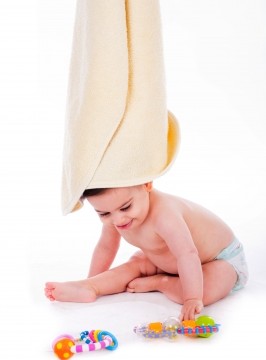Infant Intellectual Development is Through Sensory and Motor Experiences
According to Jean Piaget, infant intellectual development is through sensory and motor experiences. This scientist who was born in 1896 believed children were not little adults and could not reason as one. Developing a theory behind children and infants cognitive development allowed for a better understanding for parents and caregivers.
The first stage is devoted to infant and toddler development. It is called the sensory motor period. From age birth to 24 months, these subcategories outline how an infant matures intellectually.

Based on Piaget’s work, this how the the first two years of a baby’s life is broken down. All falling under the first stage of sensory motor period.
Reflexive Stage
(0-2 months) Simple reflex activity such as grasping, sucking.
Primary Circular Reactions
(2-4 months) Reflexive behaviors occur in stereotyped repetition such as opening and closing fingers repetitively.
Secondary Circular Reactions
(4-8 months) Repetition of change actions to reproduce interesting consequences such as kicking one’s feet to more a mobile suspended over the crib.